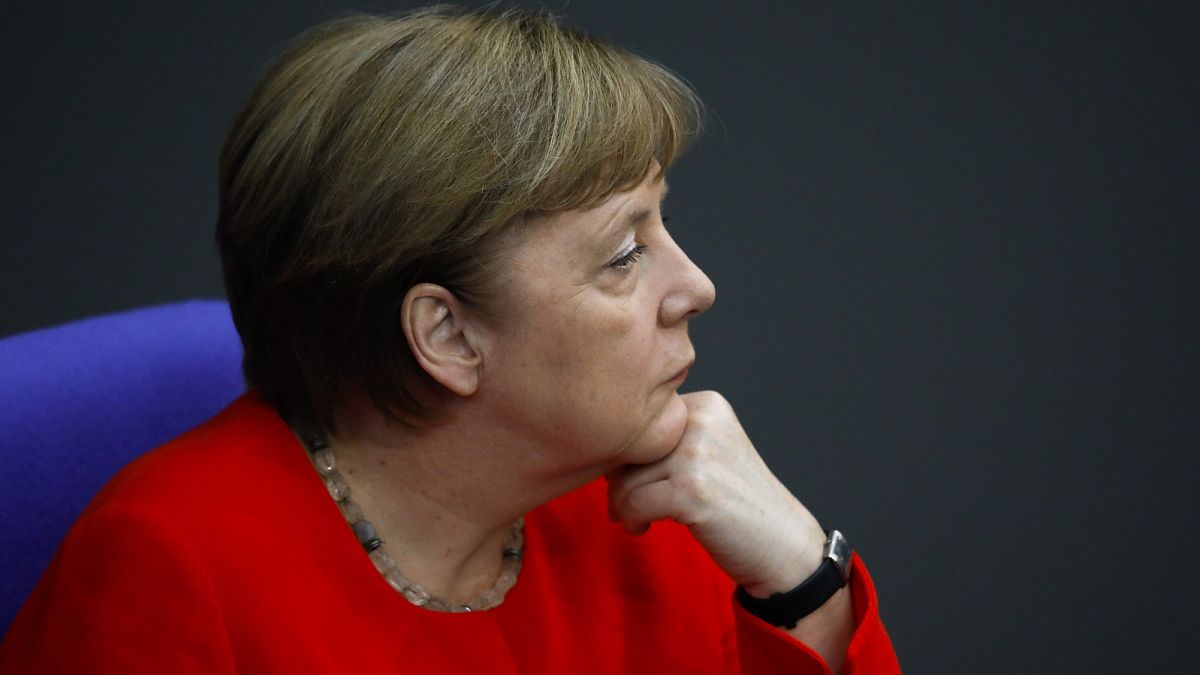With the fallout from the COVID-19 pandemic, Brexit and the impact of climate change, all eyes will be on Angela Merkel as she takes on her second crisis presidency of the EU.
Germany is taking over the rotating presidency of the EU on July 1. In terms of timing, it could not be more crucial.
All eyes will be on how Chancellor Angela Merkel handles Europe’s recovery efforts during this “Corona presidency.” The fallout from the most serious health crisis in a century will dominate affairs but other issues such as Brexit, workers’ rights, the climate crisis, and migration have not gone away. Given Merkel’s record, putting the European public’s interest first would be a serious - and necessary - change of tack. Whatever happens, the second half of 2020 will be a turning point in EU history.
To get an idea of how the German government might react to this moment, it is worth looking at their past performance when it comes to dealing with EU crises. This will be Merkel’s second “crisis presidency,” having already presided over the European Council in 2007 when the union was in the throes of debate over a possible future for the Constitutional Treaty. Voters had shot down previous treaty change proposals, but EU leaders ploughed on regardless of the institutionalisation of neoliberalism, even as the 2008 financial crash loomed on the horizon.
The response to that crisis was austerity. This time around, we must learn the lessons of that economic and social disaster in order to deliver a recovery fit for people and the planet. We need to end austerity, once and for all.
Most urgently, EU leaders must come up with solutions to the ongoing health crisis with investment in public services and the health sector where it is most urgently needed. We are also calling on the EU to guarantee that the results of research undertaken as part of the campaign against the pandemic be made available as public property.
Any economic recovery will depend on solidarity. Germany is the country that benefits the most from the EU’s single market and monetary union. It is time for Berlin to give something back and to stop pitting member states against each other.
So far, EU leaders have tiptoed around positive solutions, such as the creation of “Coronabonds.” Instead, the so-called recovery fund is supposed to do the job by dispensing grants and loans that will add debt to debt, especially in the countries hardest hit by COVID-19, such as Italy and Spain. A new financial and sovereign debt crisis is the last thing these countries need. If the EU is to survive in its current form, this is the last chance for Europe’s most powerful and longest-serving leader to show solidarity. A €1.5 trillion European Recovery Fund of perpetual bonds with zero interest rates would be a good start, for example, combined with a revision of the European Central Bank’s statutes so that it can properly support countries in difficulty.
A recovery strategy must also go hand in hand with a new orientation in European climate policy. The German government now has an opportunity to push for ambitious measures to reduce emissions in line with the Paris Agreement and kick-start the Just Transition.
Amidst all the challenges, Brexit negotiations will continue. Given the stance of the British government, a hard Brexit seems almost unavoidable. It is now necessary to outline a contingency plan that will mitigate its worst economic and social impacts. Any deal must prevent a “race to the bottom” on standards as threatened by the disaster capitalist “Singapore-on-Thames” wet dream. Peace in the north of Ireland must also be preserved - whatever the cost.
Rebuilding citizens’ trust should also be a top priority for the German presidency but the German government is far too close to big business interests. There is a danger that, during its presidency, Berlin will continue to protect these interests. Caving into car industry demands on emissions or allowing banks undue influence on Eurozone policies will just not fly.
Lastly, it is high time the EU developed a humane migration system. The German government has a political and moral duty when it comes to the unacceptable deaths and widespread abuse of refugees and migrants at our external borders. The Council must stop refusing to negotiate with the European Parliament on this and help us deliver a humane solution.
During the coming months, the course will be set for the years following the current crisis. Now is the time for a radical rethink of the social, environmental, and economic parameters of the Union. Merkel said recently that a failure to take drastic action to mitigate coronavirus fallout would help the far-right.
“Anti-democratic forces, radical, authoritarian movements are only waiting for economic crises in order to misuse them politically,” she said. She would be wise to heed her own words, finally putting solidarity ahead of narrow national interests, and giving citizens the EU they deserve. We will be holding her to account.
- Martin Schirdewan is co-president of the European United Left–Nordic Green Left group in the European Parliament
_____________
Are you a recognised expert in your field? At Euronews, we believe all views matter. Contact us at view@euronews.com to send pitches or submissions and be part of the conversation.
